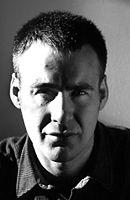Man on a white horse?
 Consider the Lilies by Iain Crichton Smith
Consider the Lilies by Iain Crichton SmithMy rating: 5 of 5 stars
The title almost put me off but was hooked soon enough. And who are you to ask anyways you stunning excuse for a man? (Anyhow that is the tone of the old dear and I just loved it.) Aside from the feisty old lady who rules her old farm house, it is about the Scottish clearances - and the exodus to NS and other parts of Canada. The old lady is notified by a fat man 'on a white horse' that she is about to be kicked out of her farmhouse where she has lived all of her life, and is suitably indignant. It is very poetic with rural images that last and has elements of Brian Moore's "Lonely passion of Judith Hearne" and Margaret Laurence's "The Stone Angel".
View all my reviews
Labels: Book Reviews, Classics, Consider The Lilies, Feisty Old Ladies, Historical Writing, Iain Chrichton Smith, John Stiles, Novels, Scottish Clearances, Scottish Independence










